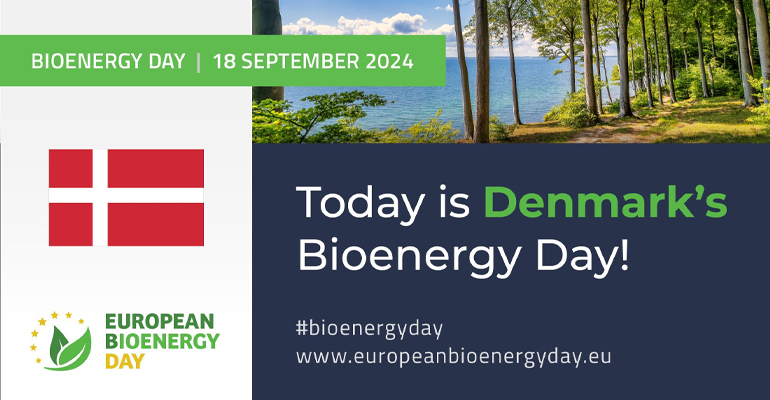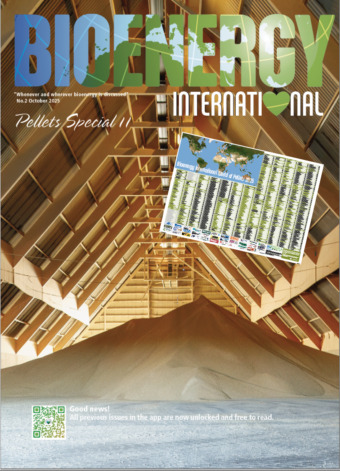Denmark is the fifth EU Member State to celebrate its National Bioenergy Day on this year's listing of Bioenergy Europe's National Bioenergy Days. While known for pioneering the global wind power industry, and the biogas sector, Danish municipal- and corporate energy utilities have transitioned heat and power generation from fossil fuels to renewables, including biomass.
The European Bioenergy Day campaign aims to shed light on the increasingly central role that sustainable biomass is playing in the EU’s energy transition.
According to Bioenergy Europe, bioenergy is a vital component of the EU’s energy system and economy, producing 85 percent of the EU’s renewable heat, representing alone one-third of renewable energy sector jobs, and saving enough carbon dioxide (CO2) emissions to cover the annual emissions of Spain.
Awareness campaign
The campaign provides key facts on biomass and the bioenergy industry and celebrates people, projects, and companies contributing to achieving European carbon neutrality.
In the past years, Bioenergy Europe launched the European Bioenergy Day campaign to provide tangible, first-hand examples of how bioenergy impacts the lives of EU citizens.
Facts
Background European Bioenergy Day

First launched in 2018, the European Bioenergy Day campaign is powered by Bioenergy Europe and relayed across Europe by both national and international partners supporting the belief that bioenergy is more than a renewable energy source, but a reliable path that will lead Europe to achieve its renewable energy transition.
Each year, Bioenergy Europe calculates the Bioenergy Day of the European Union (EU) and each Member State, showing how long a Member State or the EU could meet their energy needs using only bioenergy until the end of the year.
Every National Bioenergy Day is accompanied by a story, showcasing the impact of bioenergy in the EU, whereas the European Bioenergy Day is highlighted at the annual European Bioenergy Future conference.
This year’s motto is “Our Shared Steps Towards the Energy Transition” and the 2024 European Bioenergy Day campaign aims to share these stories, highlighting how bioenergy supports the local (bio)economy, fosters innovation, and boosts the EU’s competitiveness.

As the EU advances towards its climate goals, bioenergy continues to expand its role as a key ally in the transition.
The new EU mandate will address critical issues such as climate change, energy security, and the rising cost of living.
In this context, bioenergy is a key ally for the EU’s economy, sustainability, and energy security.
It offers a viable alternative to fossil fuels and it is a key player in carbon dioxide removal (CDR) technology thanks to bioenergy with carbon capture and storage (BECCS), and biochar through pyrolysis with carbon capture and storage (PyCCS).
Straw – and hybrid integration
While known for pioneering the global wind power industry, and the biogas sector, Danish corporate- and municipal energy utilities have transitioned heat and power generation from fossil fuels to renewables.
This includes domestic biomass such as straw and green waste, the latter of which is highlighted in Bioenergy Europe’s success story for Denmark.
It is however the emerging hybrid solutions, the balancing of excess intermittent wind and solar power with district heating networks and Power-to-X utilizing biogenic carbon dioxide (CO2) from biomass-fired combined heat and power (CHP) or biogas upgrading to biomethane, that sets Denmark apart.



